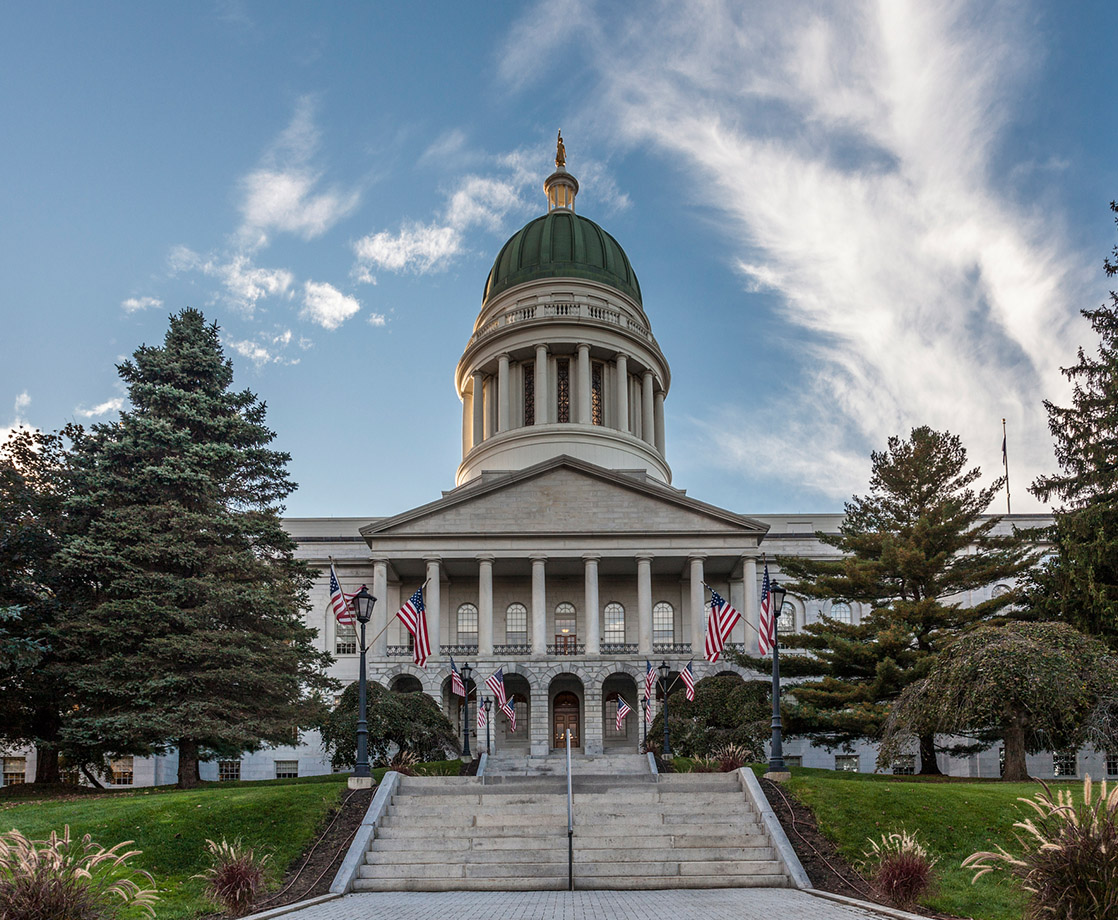It has been nearly two years since Maine residents voted for the legalization of recreational cannabis, but the adult-use pot dispensaries and social-use clubs that voters approved are still nowhere in sight. A state legislative committee is now wrapping up a second attempt at drafting regulations for retail sales, which will soon move to the state's House for a vote, potentially opening the door for sales to begin next year.
Even though the majority of Maine residents voted in favor of legalization, many state politicians, including Gov. Paul LePage, are strongly opposed to legal weed. These politicians have been working hard to derail the process, and shortly after the ballot measure was passed in November 2016, legislators voted to delay retail sales until February 2018. Last year, the state legislature re-wrote the ballot measure into a more strictly-regulated law, but Gov. LePage vetoed the bill, delaying the implementation of legal sales yet again.
State legislators have gone back to the drawing board, and a legislative committee has just finalized a new version of the regulations that will soon advance to the House for debate. "The last few months, we listened carefully and made strategic changes we think improved the bill," state Senate committee chairman Roger Katz said to the Portland Press Herald. "We are proud of our work."
The new version of the bill is even more conservative than the previous attempt at re-writing the voter-approved law. The number of cannabis plants that each resident is allowed to grow is cut from six down to three, and a provision to allow cannabis social clubs has been removed entirely. The new bill will also reserve the state's first canna-business licenses for individuals who have resided in the state for at least four years, allowing local business owners to get a head start in the industry before investors from other states get involved.
The new bill will set a 10 percent sales tax on retail pot sales as well as a 21.5 percent excise tax on wholesale cannabis sales. Gov. LePage has expressed concerns that this would not generate enough revenue, but analysts believe that these taxes will bring the state as much as $20 million a year, more than enough to pay for the implementation and upkeep of the regulatory program.
Even if the Legislature quickly approves the new bill and LePage signs it, full retail sales are not expected to begin until next year. In the meantime, while it is now legal for Mainers to possess and use cannabis, there is no way for them to legally purchase the drug. The resulting legal grey area has led to the creation of a gifting economy where businesses are offering "free" weed in exchange for donations or novelty products.
The state's medical marijuana industry is also suffering as a result of the legal confusion over recreational sales. Last year, the state's eight licensed dispensaries reported a 9% decline in sales, and state officials reported an 18% drop in the number of medical marijuana patient certifications, according to Marijuana Business Daily. Some of these patients have reportedly decided not to renew their certifications because they believed that they would be able to easily purchase weed at retail stores this year.
A brighter future may eventually be in store for the state's cannabis industry, as this year is Gov. LePage's last term in office. In the next gubernatorial election, voters may well be inclined to support a new candidate who is willing to implement the cannabis laws that they voted for.



![Snoop Dogg Plays Madden 20 with his Homies in the GGL VIII Championship [PART 6]](https://merryjane.com/wp-content/uploads/2024/04/1575592074227_ScreenShot2019-12-05at4.27.42PM.png)







